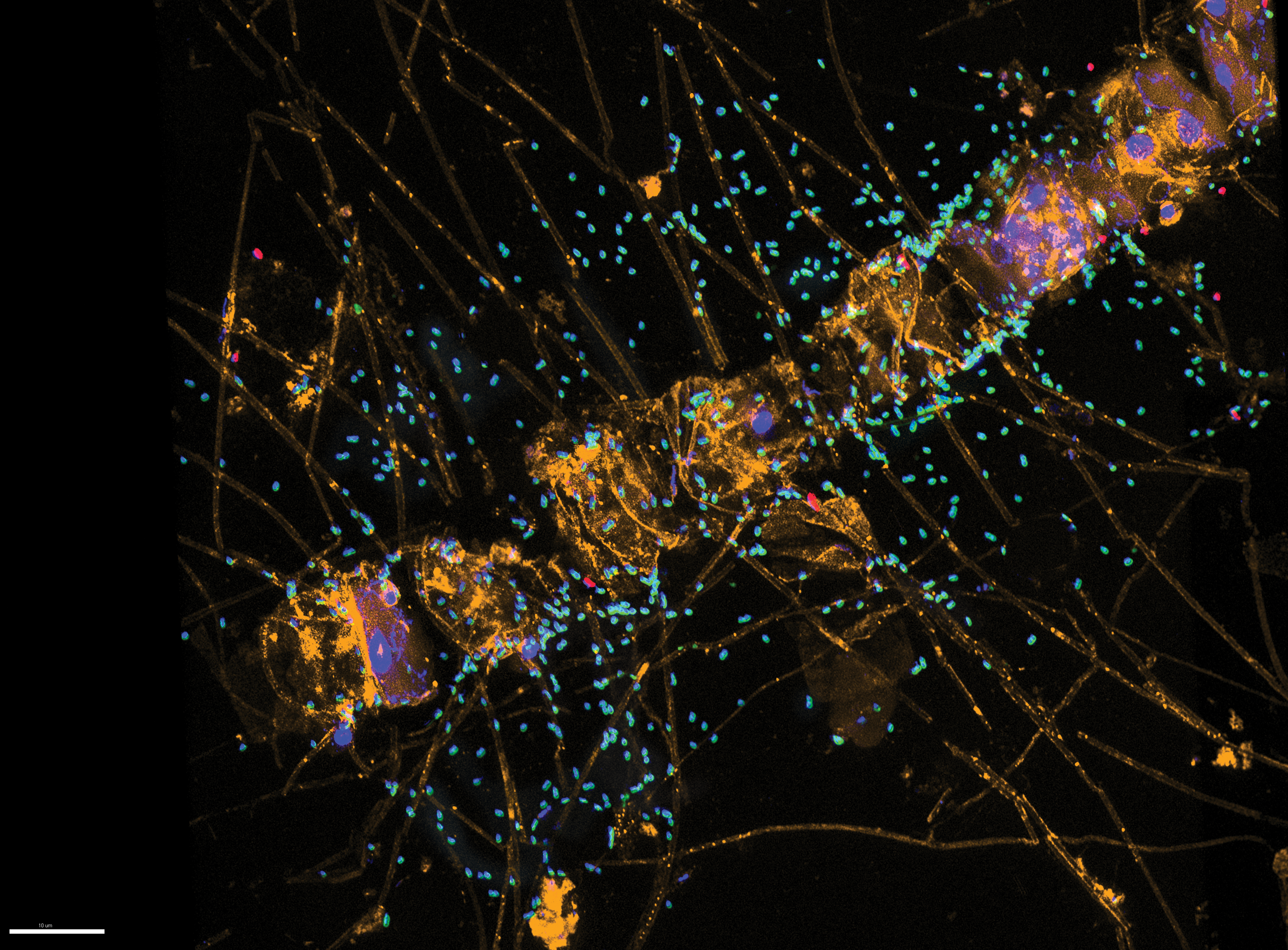Coastal regions in all of the world’s seas are increasingly affected by massive algal booms that are amplified both by eutrophication (e.g. due to the addition of nutrients from agriculture) and global warming. These huge amounts of algal biomass that are produced during certain seasons are recycled very quickly by marine bacteria - a degrading process that plays a significant role in the global carbon cycle. It is therefore all the more surprising that we currently know very little about the fundamental mechanisms, such as the bacteria, metabolic pathways and enzymes that are responsible for the degradation.
The Research Unit POMPU focuses on marine polysaccharides, i.e. long chains of sugar molecules that are produced by algae. The algal blooms seen in the seas during spring and summer are mainly caused by microalgae that produce a large number of sugar compounds with various structures. These marine polysaccharides are amongst nature’s most complex biomolecules. One single bacteria is not able to utilise the complex mix of marine polysaccharides by itself; a broad network of degradation pathways and enzymes is required. Nature has established a community of various bacteria that work hand in hand to perform this task.
In order to gain a better understanding of the microbes’ strategies for degrading sugar, the researchers take samples of sea water during the algal blooms. The Research Unit FOR 2406 would like to find out how marine bacteria are able to utilise the seas’ complex algae sugars. The aim is to determine all of the genomes and proteins of marine bacterial communities, to elucidate the details of their enzymatic functions and to investigate the bacteria’s specific adaptation mechanisms.
The DFG Research Unit POMPU helps to elucidate important ecological functions of marine bacteria during various stages of algal blooms and thus to gain knowledge about the function of the seas as the ‘biological pump’ during times of global warming. If the understanding of the function of marine bacteria and enzymes can be improved, new perspectives could be revealed for using the promising potential of marine polysaccharides from algae in a targeted biotechnological manner.
Prof. Dr. Thomas Schweder (Institute of Pharmacy, University of Greifswald) and Prof. Dr. Rudolf Amann (Max Planck Institute for Marine Microbiology, Bremen) are spokesperson and co-spokesperson of the consort.
Further Information
POMPU Project
Contact at the University of Greifswald
Prof. Dr. Thomas Schweder
Pharmaceutical Biotechnology
Institute of Pharmacy
Felix-Hausdorff-Straße 3, 17489 Greifswald
Tel.: +49 3834 420 4212
Contact at the Max Planck Institute for Marine Microbiology
Prof. Dr. Rudolf Amann
Max Planck Institute for Marine Microbiology
Celsiusstraße 1, 28359 Bremen
Tel.: +49 +49421 2028 930
Partners in the Research Unit FOR 2406
Spokesperson: Prof. Dr. Thomas Schweder, University of Greifswald
Co-spokesperson: Prof. Dr. Rudolf Amann, Max Planck Institute for Marine Microbiology
Prof. Dr. Dörte Becher, University of Greifswald
Dr. Mia Bengtson, University of Greifswald
Prof. Dr. Uwe Bornscheuer, University of Greifswald
PD Dr. Bernhard M. Fuchs, Max Planck Institute for Marine Microbiology
Prof. Dr. Jens Harder, Max Planck Institute for Marine Microbiology
Dr. Jan-Hendrik Hehemann, MARUM - Center für Marine Environmental Sciences, University of Bremen
Dr. Matthias Höhne, University of Greifswald
Prof. Dr. Kathrin Riedel, University of Greifswald
Dr. Hanno Teeling, Max Planck Institute for Marine Microbiology

